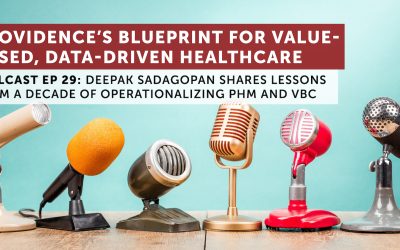
The only noticeable difference is where most recent conference keynotes seem to focus on analytics and the power of liberated data to change population management, here every major talk focused on that topic. Personally, I did find the audience to be more fun than the last few events I attended, and the excitement was a little more palpable, but other than that, it was more of the same.
With that said, there was a little gem of a conference held directly after Health Datapalooza. June 5th and 6th introduced the world of health to Wil Yu’s brainchild, the MedCity ENGAGE conference. This conference exclusively focused on a topic very close to our hearts here at Chilmark: patient engagement successes and failures. Below are some reflections from both events.
Health ChallengePalooza
Over the past couple of years, we have noticed a trend among the various annual health technology conferences: the rise of the ‘Challenge.’ This pattern reached an all new high at this year’s Health Datapalooza, where a vast majority of the main stage sessions had one purpose: to announce the winners of these sponsored challenges or announce new challenges. A list of the challenges (and winners):
- Sanofi Data Design Diabetes (Connect and Coach)
- Heritage Health Prize (POWERDOT) – now doing a second ‘master’s’ competition
- PCORI Challenge – (ACTONNECT)
- Cajun Codefest (“Team BreakFix”)
- “My Air, My Health” (Conscious Clothing)
- Heritage/UCLA Open mHealth Challenge (Mood Rhythm)
New Challenges Announced:
- Kaiser Interchange Code-a-thon – Best use of their [limited] API
- SureScripts Technology Challenge – Use Rx data to track influenza in real time
- RWJF Challenge – Best use of CMS pricing transparency data
No doubt these challenges serve a very real purpose in encouraging innovation in the health IT space, and make the market far more accessible and appealing for outsiders. With traditional early investment (angel and seed VC) a bit wary of the space after many past failures, the challenges serve a very important way for innovators to at least gain access to some early capital, albeit typically quite small amounts. Furthermore, innovative solutions that may have had to fight tooth and nail for recognition and a modicum of publicity are given a prominent stage to highlight the work they are doing.
However, there is no incentive beyond the initial cash purse for virtually all of these challenges, which means that teams inexperienced with healthcare sales cycles may not realize the difficulty of bringing the concept to a broader market. In fact, we have a hard time thinking of any of these “challenge winners” announced over the last couple of years getting any traction. Very few of the challenges have any extended support past the announcement, and more often than not the privately sponsored challenges serve little purpose beyond publicity stunts for those organizations that sponsored the challenge in the first place.
Other challenges play out in strange ways, like the famous Heritage Health Prize, with a $3M grand prize. After two years of interval contests and over 35,000 submitted solutions, now has to hold a ‘Master’s Competition’ because their threshold for winning the grand prize wasn’t achieved, largely in part due to not providing complete data to contestants (a more detailed analysis can be read here).
Population Health Management (PHM)
As we discussed in our post about HIMSS’13, PHM is the buzzword baby of Health Analytics. True, this was a Health Data conference, so of course analytics are going to play a major role in any discussions. However, in our closed sessions with Startup Health, analytics was barely mentioned. What matters is business models and market readiness for these solutions.
Hype aside, it is still rare to hear of an organization effectively implementing a population health strategy. Everyone cares about reporting and meaningful use right now. The analytics around population health management are still emerging and the depth of data is still relatively shallow to do anything of significance. Until more data is opened to the public to play with, population health management is going to be rather shallow.
This doesn’t mean there aren’t great companies emerging. Amplify Health, a recent Rock Health inductee, is making a play to identify what engagement solutions will be best for reducing the costs of treating different populations. Aver Informatics, a fellow Healthcare Transformer, allows anyone using their system to more easily (and quickly) run analytics protocols on whatever data sets they want to process. Both of these are the necessary upstream solutions for PHM, but with few new management solutions out there that are clinically validated, where do HCOs go once they have the analytics piece? Hopefully we will be able to help answer this in the second half of the year as we continue our work monitoring and analyzing the PHM market (see what I did there?).
ENGAGE
While I find most conferences to be entertaining and useful for the networking, very rarely do I get much out of the sessions as they all tend to be rather high-level cheering for the industry. Our first experience with the ENGAGE conference was a little different. In its first year, the attendees were almost all individuals very focused on the patient engagement side of the previously discussed Population Health Management. Most speakers understood the need to account for individuality in their approach and there were a number of anecdotal stories told about what works and what doesn’t. This latter piece is something that is often missing from the bigger conferences, which always seem to focus on the Next Big Thing (which according to Samsung is already here).
For the sake of brevity, we will highlight our favorite engagement feature we came across. There is a company based out of Los Angeles called Qpid.Me. Their goal is to make it easier for everyone to have access to their health records. Unfortunately, many people don’t care much about managing their health records (one of the major reasons why Google Health fell flat), so they chose an area that people do care about: getting lucky. They have created a platform that allows users to store the results of their STD tests, and then easily retrieve them when needed.
What was most interesting about their product isn’t that they are working to help people store their STD records. It’s how they are empowering individuals to do something when they get told access isn’t possible because of HIPAA. In case anyone forgot, HIPAA stands for Health Insurance Portability and Accountability Act. That P is specifically what makes it illegal to deny a patient access to their records, yet most patients don’t know this and just accept what the clinic tells them. Qpid.me empowers patients by making it very easy for a user to flag a clinic as uncooperative and redirect other users to more user-friendly clinics, leading to a direct financial penalty to those clinics that deny patients their rights. They even have an option (which may still be under development) to file a complaint with the ONC. Talk about patient empowerment!
And as we all know, with empowerment comes ownership and personal accountability, which is engagement at its finest.
Editor’s Note: It should be noted that the author is also founder of RxApps, which is participating in the Startup Health accelerator program. As part of Health Datapalooza, the program had closed sessions with many of the key individuals at the event during the afternoon breakout sessions of the conference. He was therefore unable to attend those breakout sessions.




0 Comments